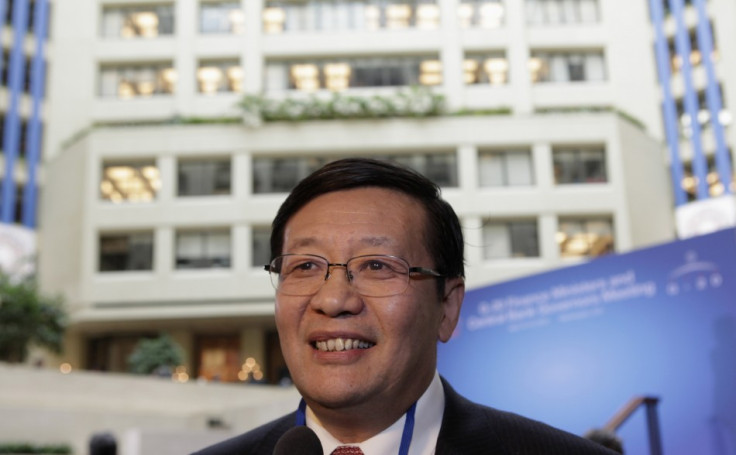China's Finance Minister Pegs 7.5% Economic Growth in 2013

China's finance minister Lou Jiwei has tried to calm investors who think the world's second-largest economy is slowing down too rapidly, by revealing that it could expand by 7.5% this year.
According to an interview published by China's official press agency Xinhua, Lou said increases in domestic power generation and consumption are driving growth in the economy. He added that alongside increases in "the service industry's usage of electricity" it shows that efforts to move China's economy away from manufacturing and towards services were paying off.
Lou said that China would also continue with reforming taxation, such as converting sales taxes to value-added-tax (VAT), in order to promote further growth.
The Chinese government said in talks at the G20 meeting in Russia that it also plans to cut down paperwork and application requirements for Chinese businesses.
China Economy to Grow but By How Much?
Earlier this month, a Xinhua article quoted Lou as saying that China's growth would average 7% in 2013. The news agency later corrected its report to quote him as saying 7.5%, which boosted mainland Chinese stocks on 15 July.
His views were more mixed on China's real estate industry, which regulators and economists fear is attracting more speculators than end users and is fuelling inflation.
Rising housing prices aside, the industry faced other issues such as excess housing supply in some cities and insufficient land supply in others.
The industry should play a "normal" role in economic development, said Lou, adding that its place in China's urbanisation project required further study by China's State Council.
US QE Tapering to Hurt China?
The Xinhua report comes a day after China pledged to allow banks to decide their interest rates.
Investors hope liberalised interest rates will put the economy on a more sustainable growth path.
Meanwhile, China's economy is slowing down - although growth rates are still significantly higher than those in Europe.
China's GDP grew by 7.5% in the April-to-June second quarter but expanded by 7.7% in the previous quarter. This is 2% lower than the final quarter of 2012.
Lou warned the US against rolling back its asset purchase programme, without considering the repercussions, as it would impact emerging market economies too.
A cutback in quantiative easing (QE) would raise bond yields in the US, which in turn would raise eurozone rates and suck money from emerging markets.
A sudden withdrawal of foreign funds from emerging markets - which has happened before, during the Asian and Russian financial crisis of 1997 and 1998 respectively - could also be catastrophic.
However, Lou added that "none of my fellow delegates think China is going to have a hard landing."
Economic data shows the US economy is improving and several economists believe it is ready for a cutback in monetary stimulus.
© Copyright IBTimes 2025. All rights reserved.






















